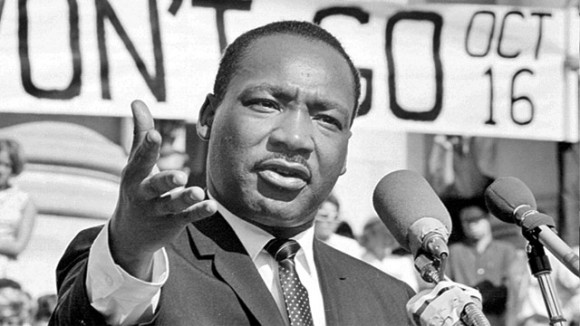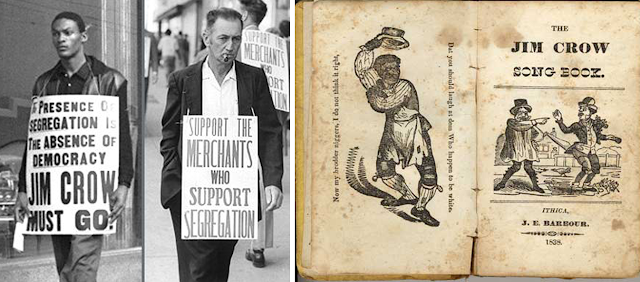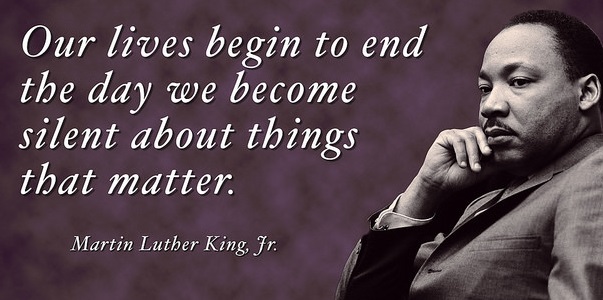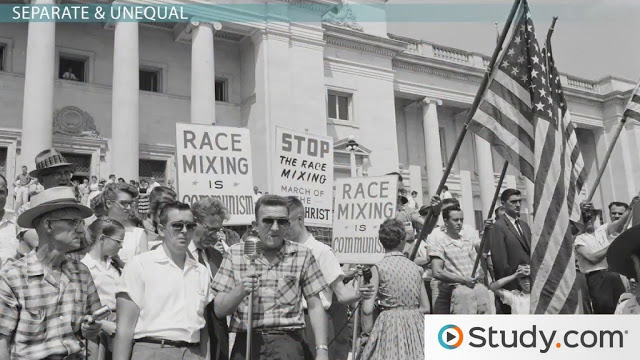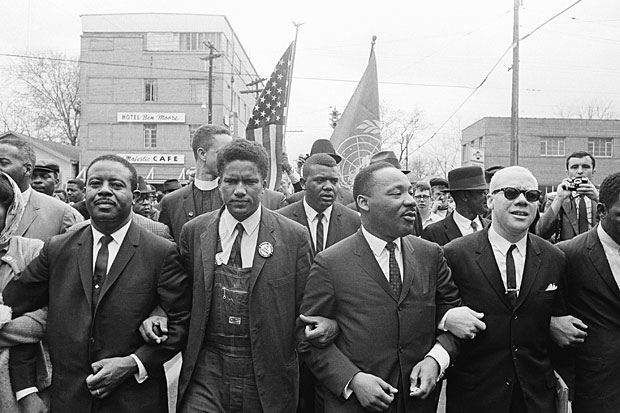Ahed Tamimi and Martin Luther King
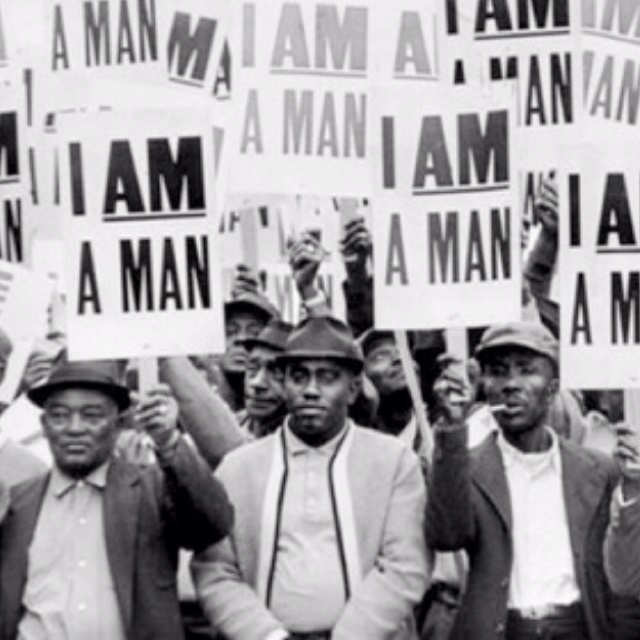 |
| A simple message that is the slogan of the Black African refugees in Israel today |
It is all the more remarkable because it came from someone who was seen by Black nationalists as compromised by his relationship to the Kennedy’s and the White American Democratic Establishment. MLK was a pacifist whereas Malcolm X believed in responding with violence to violence.
In his Letter MLK responds to
the appeal of 8 white clergymen who criticised the resort to non-violent direct
action saying ‘I
feel that you are men of genuine good will and your criticisms are sincerely
set forth’.
However King is all the more critical of them because of this. King
writes about how ‘You deplore the demonstrations
that are presently taking place in Birmingham. But I am sorry that your
statement did not express a similar concern for the conditions that brought the
demonstrations into being.’
goes through a litany of broken promises made by white liberals that they would
effect changes such as the taking down of the humiliating racial signs that
were still displayed in stores. He went
through all the injustices that Black people experienced, the bombings and
murder of Black people.
untimely, that he should have given the newly elected Administration in Alabama
time to act, that he should have had patience. MLK’s response is as valid now as then:
 |
| 16-year-old Ahed Tamimi in Israeli military court (Photo: Tali Shapiro/Twitter) |
gain in civil rights without determined legal and nonviolent pressure. History
is the long and tragic story of the fact that privileged group s seldom give up
their privileges voluntarily. Individuals may see the moral light and
voluntarily give up their unjust posture; but, as Reinhold Niebuhr has reminded
us, groups are more immoral than individuals.
and rely on the good will of the powerful to reform themselves. MLK is saying that if we wait for the time when
the privileged and powerful reform themselves we will be waiting forever
because those who are born with privileges never give them up of their own
accord. We have to force them to
disgorge their ill gotten gains. That is
the argument for BDS.
must obey the law, even if it is wrong.
This is the ritual call of the Right to ‘respect’ unjust laws. MLK responds by saying that we must
distinguish between the just and unjust law:
can you advocate breaking some laws and obeying others?” The answer is
found in the fact that there are two types of laws: there are just laws, and
there are unjust laws. I would agree with St. Augustine that “An unjust
law is no law at all. Now, what is the
difference between the two? How does one determine when a law is just or
unjust? A just law is a man – made code that squares with the moral law, or the
law of God. An unjust law is a code that is out of harmony with the moral law.
To put it in the terms of St. Thomas Aquinas, an unjust law is a human law that
is not rooted in eternal and natural law. Any law that uplifts human personality is just. Any law
that degrades human personality is unjust.
context of what he calls ‘moral law’ or ‘natural law before elaborating that it
is a law that degrades or uplifts a human personality. In simple terms does the law treat all people
equally or is it an oppressive law.
natural law is subjective, that different people are likely to have different
views as to what constitutes morality, MLK makes it more tangible:
to a more concrete example of just and unjust laws. An unjust law is a code
that a majority inflicts on a minority that is not binding on itself. This is
difference made legal. On the other hand, a just law is a code that a majority
compels a minority to follow, and that it is willing to follow itself. This is
sameness made legal.
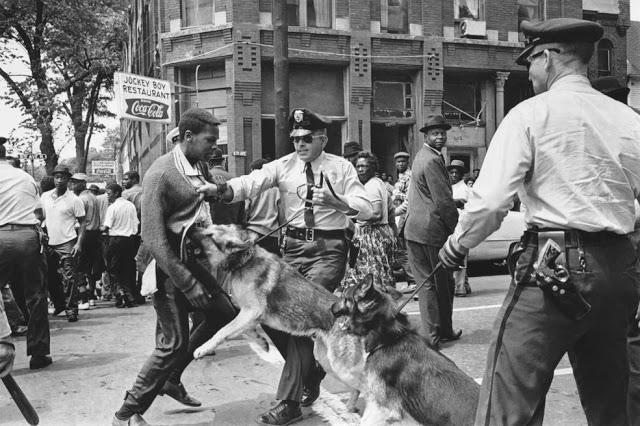 |
| Israel also uses dogs against Palestinian (but never Jewish) demonstrators |
Germany. Today MLK would be termed an
anti-Semite for making such comparisons!
Germany was “legal” and everything the Hungarian freedom fighters did
in Hungary was “illegal.” It was “illegal” to aid and
comfort a Jew in Hitler’s Germany. But I am sure that if I had lived in Germany
during that time, I would have aided and comforted my Jewish brothers even
though it was illegal.’
enemy is not the racist but the White Liberal who tries to hold him back.
Christian and Jewish brothers. First, I must confess that over the last few
years I have been gravely disappointed with the white moderate. I have almost
reached the regrettable conclusion that the Negro’s great stumbling block in
the stride toward freedom is not the White Citizens Councillor or the Ku Klux
Klanner but the white moderate who is more devoted to order than to justice;
who prefers a negative peace which is the absence of tension to a positive
peace which is the presence of justice…’
with Palestine. The so-called ‘peace
process’ doesn’t talk about justice or a ‘positive peace’ but a peace that means
the continuing of oppression by other means.
hope: ‘Oppressed people cannot remain oppressed forever. The urge for freedom
will eventually come. This is what has happened to the American Negro.’
that many of us face, that he was an extremist.
Moderation being closely aligned with the existing order and the status
quo. King asks if Jesus too was an
extremist. One can generalise from
this. All those seeking change are ‘extremists’
– the Suffragettes or the Chartists were also considered ‘extreme’ by those who
held power:
continued to think about the matter, I gradually gained a bit of satisfaction
from being considered an extremist. Was not Jesus an extremist in love?
your enemies, bless them that curse you, pray for them that despitefully use
you.” Was not Amos an extremist for justice?
justice roll down like waters and righteousness like a mighty stream.” Was
not Paul an extremist for the gospel of Jesus Christ?
in my body the marks of the Lord Jesus.” Was not Martin Luther an
extremist? –
stand; I can do no other so help me God.” Was not John Bunyan an
extremist?
stay in jail to the end of my days before I make a mockery of my
conscience.” Was not Abraham Lincoln an extremist? “This nation cannot survive half slave
and half free.” Was not Thomas Jefferson an extremist? “We hold these truths to be self-evident,
that all men are created equal.” So the question is not whether we will be
extremist, but what kind of extremists we will be. Will we be extremists for
hate, or will we be extremists for love? Will we be extremists for the
preservation of injustice, or will we be extremists for the cause of justice?
with the White Church:
on to mention my other disappointment. I have been disappointed with the white
church and its leadership. Of course, there are some notable exceptions. I am
not unmindful of the fact that each of you has taken some significant stands on
this issue.
clergy have praised the very forces of law and order that set upon the civil
rights demonstrators in Birmingham, Alabama with extreme violence. I am reminded of Obama, who rushed to condemn
the killing of Police by a Black sniper in response to the deaths of Black
people. Obama didn’t however condemn the
Police violence that led to the deaths of Michael Brown in Fergusson and Eric
Garner in New York.
for keeping “order” and “preventing violence.” I don’t
believe you would have so warmly commended the police force if you had seen its
angry violent dogs literally biting six unarmed, nonviolent Negroes. I don’t
believe you would so quickly commend the policemen if you would observe their
ugly and inhuman treatment of Negroes here in the city jail; if you would watch
them push and curse old Negro women and young Negro girls; if you would see
them slap and kick old Negro men and young boys, if you would observe them, as
they did on two occasions, refusing to give us food because we wanted to sing
our grace together. I’m sorry that I can’t join you in your praise for the
police department.’
lessons of MLK’s Letter from Alabama to Ahed Tamimi. It is well worth reading.
15, 2018
to Ahed Tamimi’s detention in an Israeli prison for slapping an occupying
soldier on December 15 is reminiscent of the white liberals in Martin Luther
King’s Letter from a Birmingham Jail, written in 1963. Today, you can
give yourself no better political lesson than rereading that
inspiring document of the American movement for freedom.
action.” King addresses a group of white liberal ministers and rabbis who have
said they’re against segregation but times are changing, so why do “extremist”
black clergy have to risk a backlash with provocative demonstrations? King
answers that time is neutral and won’t do anything on its own; blacks have
waited for hundreds of years for some modicum of justice and learned that the
privileged will never give up privilege without pressure. White businesses
promised to remove humiliating signs directing blacks to segregated water
coolers and bathrooms and never followed through, and meantime anti-colonial
struggles in other countries have outpaced American change, and inspired blacks
to dream of an equal future.
King explained:
for growth. . . . we must see the need of having nonviolent gadflies
to create the kind of tension in society that will help men to rise from the
dark depths of prejudice and racism to the majestic heights of
understanding and brotherhood. So, the purpose of direct action is to create a
situation so crisis-packed that it will inevitably open the door to
negotiation.
outright racists, King said, because they defused that tension among
progressives with “lukewarm acceptance.” In the distant past the church had
ended infanticide and gladiators’ fights to the death, but now the church was
ineffectual. King warned:
dismissed as an irrelevant social club with no meaning for the twentieth
century. I meet young people every day whose disappointment with the church has
risen to outright disgust.
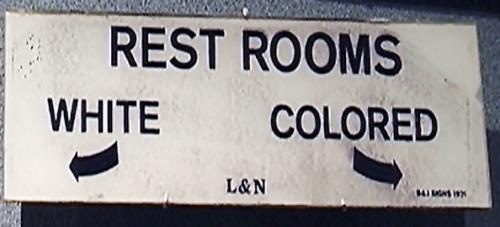 |
| This is the only thing that Israel lacks – signs directing Jews and non-Jews because they don’t need them |
“urgency of the moment,” King said, but the moderate ministers were blindly
supporting order, however unjust.
“preventing violence.” I don’t believe you would have so warmly commended
the police force if you had seen its angry violent dogs literally biting six
unarmed, nonviolent Negroes.
who advocate violence against Jim Crow.
Tamimi in an Israeli jail are many. Occupied Palestinians have waited decades
for justice as other struggles in the world have been successful. Palestinians
have long been promised sovereignty and never gotten it. “Society must protect
the robbed and punish the robber,” King writes, but Palestinians have seen
their lands robbed year after year with no enforcement mechanism from the
world. Many in the Palestinian community now advocate violence. But in their
little village the Tamimi’s are part of a non-violent struggle against a
violent occupation.
slapped the soldier in her tiny village of Nabi Saleh on December 15, just
hours after her cousin
was maimed by another Israeli soldier.
leftwing Israelis and American liberal Zionists, who tell us
there must be equal sympathy for the Israeli soldiers and the Palestinian children.
While the U.S. press
writes articles about Tamimi’s choice in clothing, suggesting her encounters were
staged. These people rationalize Israel’s brutal policy of a “managed conflict”
forever with “lukewarm acceptance.”
Violence entails the possibility of producing injury to another. Tamimi’s slap
of a towering, heavily-armed soldier was merely an insult, and a resonant one.
“We must see the need of having non-violent gadflies.” (And as for throwing stones,
even the New York
Times Magazine has justified that as a legitimate response to occupation).
status quo. Moral people — church people, political people — must either take
action or support it, he said. Geography is no barrier. “Injustice anywhere is
a threat to justice everywhere,” is the most ringing line in the letter (which
one of us used as an epigraph in his book
against South African apartheid).
U.S. and sacrificing his life to do so. The letter speaks to all who cherish
the hope of ending other injustices. It is NOT meaningful as a nostalgic
signpost of a huge battle our society won 50 years ago. It is ONLY meaningful
as a signpost for what actions we should take today.
statement. Birmingham 1963 is the “eternal now“ of the letter,
and the message passes from King’s soul to the reader right now. It addresses
the struggle we all feel inside ourselves: It calls to the idealistic and
motivated parts of our nature that see a way to address injustice, and against
the lukewarm, timid despairing acceptance we feel in the face of huge odds.
meaning, to look on the lives of our brothers and sisters in Palestine and to
hate the occupation and anything that rationalizes it. King tells us to be with
Ahed Tamimi in her cold cell, and fight for her freedom.
11 days. Ahed Tamimi, 16 years old, is still in an Israeli jail — 27 days
later, and counting.
